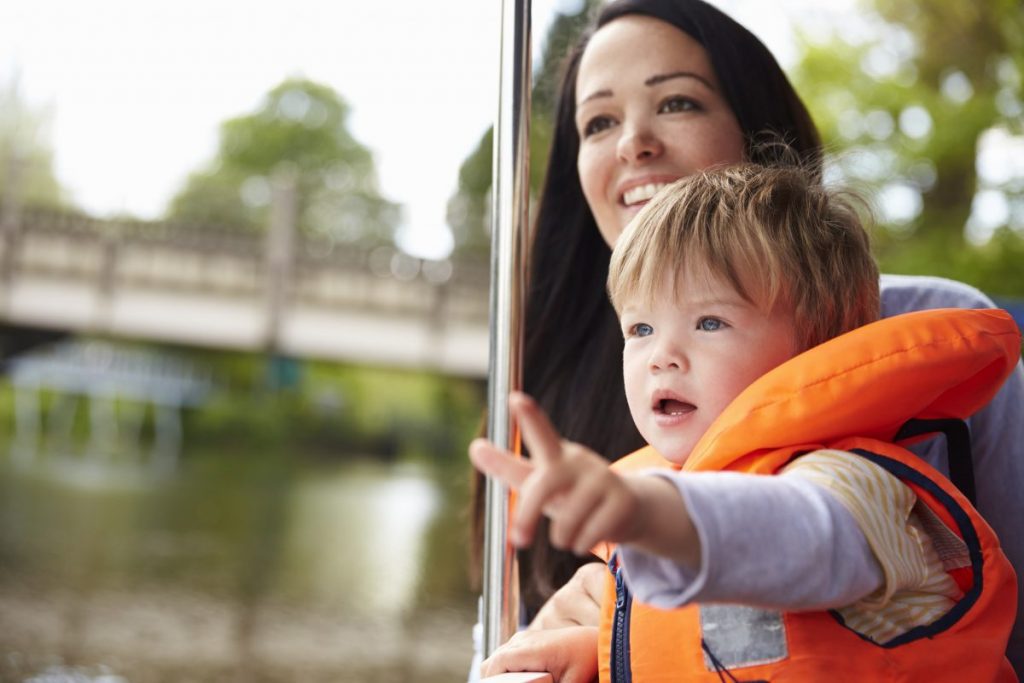If you like taking your boat out into the open ocean, it’s only a matter of time before you have an up-close encounter with a curious aquatic animal. Whether it’s a friendly dolphin or a massive whale, knowing how to interact with ocean wildlife is a safety measure you won’t want to take for granted.
Lack of proper attention puts you, endangered species, federally protected species, and thousands of other species’ lives in jeopardy. As a guest in the ocean, it is your responsibility to show you have an appreciation for wildlife by following certain etiquette while boating, for your safety and theirs.
Learn Before You Go
Read about the wildlife viewing sites and local regulations in order to partake in a pleasant wildlife experience. Many species live only in specific habitats such as estuaries, coral reefs, sand dunes or the open ocean. Seasonal and daily cycles also influence when and where an animal may be located. Research on the internet, purchase regional viewing guidebooks, speak with local residents and hire local guides to learn more about marine wildlife.
Keep Your Distance
Use binoculars, spotting scopes and cameras with zoom lenses to get a closer look. Marine wildlife may be very sensitive to human disturbance, and if cornered, they may leave the area or become dangerous.
If wildlife approaches you, stay calm and place boat engines in neutral. When closer encounters occur, do not make sudden moves or obstruct the travel path of the animals. Let them have the unhindered right of way.
Stay Hands-off
Never touch marine wildlife. Touching wildlife, or attempting to do so, can injure the animal, put you at risk and may also be illegal for certain species. The slimy coating on fish and many marine invertebrates protects the animal from infection and is easily rubbed off with human interaction. Keep in mind, wild animals may bite, body slam or even pull you underwater if startled or threatened.
Never Feed or Attempt to Attract
Feeding or attempting to attract wildlife with food, decoys, sound or light disrupts normal feeding cycles, may cause sickness or death from unnatural or contaminated food items, and habituates animals to people. Habituated animals are vulnerable to vessel strikes or vandalism, and can be dangerous to people.
Don’t Harass
Following a wild animal that is trying to escape is dangerous. Never completely surround the animal, trap an animal between a vessel and shore, block its escape route, or come between mother and young. When viewing from a boat, operate at slow speed, move parallel to the swimming animals, and avoid approaching head-on or from behind, and separating individuals from a group.
Lend a Hand
Human garbage is one of the greatest threats to marine wildlife. Carry a trash bag with you and pick up litter found along the shore and in the water. Plastic bags, floating debris and monofilament line pose the greatest risk to wildlife.
Speak up if you notice other viewers disturbing the wildlife or impacting sensitive habitats. When operating a boat, you will want to have boat insurance in place if something were to go wrong. Lead by example and reduce your speed in areas frequented by marine wildlife, anchor carefully and encourage others to do the same.
About Mariners Insurance
Mariners General Insurance Group was founded in 1959 to protect boat owners and marine business clients. We are marine insurance experts and insure boats worldwide – in every ocean on the planet. Marine insurance is critical if you own a boat or nautical business. Trust the professionals with all of your Boat Insurance needs – trust Mariners Insurance. Call us at (800) 992-4443 any time you have questions or concerns about insurance for your vessel or marine business.



